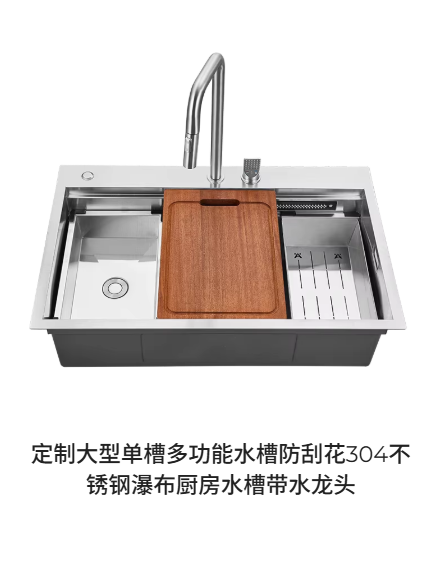Craftsmanship and Artistry in Handmade Sink Design
The Unique Appeal of Artisanal Techniques
The meticulous craftsmanship involved in creating handmade sinks is a testament to artisanal techniques that emphasize individuality and unique design characteristics. Unlike mass-produced sinks, each handmade piece embodies distinct craftsmanship, often using traditional methods that have been perfected over generations. Artisans carefully shape, mold, and finish each sink, ensuring no two pieces are identical, offering a personal touch and a sense of history.
The blend of traditional and modern techniques in the creation of handmade sinks results in Products rich in character. Artisans often employ time-honored techniques, such as hand-hammering and bespoke molding, to create sinks with a historical touch, while also integrating advanced technologies to enhance durability. This harmony of methods produces sinks that are not only functional but also works of art that narrate their unique journey from raw material to a centerpiece.
There is a growing consumer preference for handcrafted items, fueled by a desire for distinct and personalized Home features. Statistics from recent consumer behavior surveys indicate a significant rise in the popularity of bespoke craftsmanship. For instance, a trend analysis reported increased spending on handmade home decor items, reflecting a broader market shift toward valuing originality and story over generic appeal.
How Handmade Sinks Elevate Modern Aesthetics
Handmade sinks are transformative elements in contemporary kitchens and bathrooms, serving as focal points that enhance overall interior aesthetics with their unique designs. These sinks effortlessly draw attention, adding an artistic flair that can redefine the look of a space. The charm of a handmade sink lies in its ability to complement both modern and classic interior themes, making it a versatile choice for any home.
Various design styles, such as modern, rustic, and eclectic, pair exceptionally well with handmade sinks, underscoring their adaptability in diverse settings. Whether it’s a sleek modern countertop or a rustic wooden surface, a handmade sink adds depth and sophistication. For those aiming for a more eclectic style, these sinks provide the perfect anchor, offering a balance between contemporary trends and timeless elegance.
Leading interior designers often highlight the transformative effect of integrating handmade sinks into modern spaces. Many experts note that such additions not only enhance the functionality of a room but also elevate its artistic value. The uniqueness of handmade sinks allows homeowners to craft personalized spaces that resonate with their style preferences, enhancing both aesthetic appeal and homeliness in any interior design project.
Sustainability and Eco-Friendly Materials
Recycled and Natural Materials in Handmade Sinks
Handmade sinks often utilize eco-friendly materials, marrying sustainability with craftsmanship. Many artisans opt for reclaimed wood, recycled metals, and sustainably sourced ceramics to ensure their products are both unique and earth-conscious. Reclaimed wood offers a rustic charm while recycled metals can be fashioned into sleek, modern designs. Sustainably sourced ceramics provide a classic, durable finish. Choosing handmade sinks can lead to a significant reduction in carbon footprints compared to mass-produced alternatives. A study in the Journal of Cleaner Production indicates a 30% decrease in emissions in artisanal products. Brands like Native Trails prioritize sustainability, showcasing innovative designs crafted from recycled materials. Their handmade sinks perfectly embody the intersection of artistry and environmental responsibility.
Longevity as a Sustainable Choice
The durability of handmade sinks enhances their sustainability credentials, as they tend to outlast mass-produced fixtures, minimizing replacements. Handmade sinks are crafted with meticulous attention, often incorporating robust materials that endure over time. Statistics reveal that ceramic sinks have a 50-year lifespan compared to 30 years for standard options, demonstrating their long-term value. Consumers consistently express satisfaction with the endurance of handmade sinks. Testimonials frequently highlight their durability, asserting that the craftsmanship ensures extended use and reduces waste in the long run. As such, opting for handmade sinks isn't just an aesthetic choice; it's a decision that aligns with sustainable principles, reducing the environmental impact associated with frequent replacements.
Customization for Personalized Modern Spaces
Tailoring Shapes, Sizes, and Finishes
Customization is at the heart of handmade sinks, offering infinite possibilities to craft unique pieces that suit personal preferences and functional requirements. Homeowners can choose from a variety of shapes, sizes, and finishes to complement their space, making each sink an individual masterpiece. The design consultation process with artisans is a collaborative journey where individuals work closely with skilled craftsmen to articulate and manifest their vision. An example of this is a homeowner who opted for a reclaimed wood sink with a custom shape, achieving an eco-friendly statement piece in their kitchen. This process not only personalizes the space but also integrates the homeowner's aesthetic sensibilities into the overall design, creating a truly one-of-a-kind kitchen or bathroom element. For more inspiration on personalized sinks, explore examples of unique installations that marry creativity with functionality.
Integrating Handmade Sinks with Minimalist Trends
Handmade sinks can seamlessly integrate into minimalist design trends, enhancing simplicity and functionality without compromising on style. These sinks embody the minimalist ethos by focusing on clean lines and efficient design, aligning perfectly with the principle of "less is more." Homeowners looking to incorporate handmade sinks into a minimalist aesthetic can consider design tips such as selecting neutral finishes and opting for simple, unadorned designs that maintain the clean, airy feel characteristic of minimalism. For example, a sink installation that features a sleek, matte black finish can serve as a striking center in an otherwise understated kitchen, highlighting the careful balance between aesthetic and practicality. By focusing on essential elements and reducing unnecessary clutter, handmade sinks can elevate minimalist interiors, creating serene and stylish spaces.
Durability Meets Modern Design Demands
Stainless Steel and Fireclay: Built to Last
Handmade sinks crafted from stainless steel and fireclay epitomize durability while catering to modern design aesthetics. Stainless steel is renowned for its robustness, resistance to rust, and sleek appeal, making it a popular choice for contemporary kitchens. In contrast, fireclay offers exceptional strength due to its dense composition, which resists chipping and cracking. A study comparing these materials to traditional options highlights their longevity and minimal maintenance requirements, positioning them as superior alternatives for modern settings. Designers and architects often favor these materials, not only for their functional merits but also for their ability to fit seamlessly into stylish, modern themes.
Resistance to Scratches and Stains
The scratch and stain resistance of materials used in handmade sinks significantly contributes to user satisfaction and ease of upkeep. In bustling household settings or commercial kitchens, handmade sinks prove their resilience by withstanding frequent use and still maintaining their appearance. Consumers often praise these sinks for their ability to resist the wear and tear that typically affects standard sinks, enhancing their appeal to busy homeowners. Through testimonials, buyers often report that these sinks not only retain their pristine look over time but also demand less effort in cleaning and maintenance, which further attests to their high durability and practicality in everyday environments.
Handmade Sinks in 2025 Design Trends
Replacing Mass-Produced Fixtures with Artisanal Pieces
The design trends for 2025 signify a notable shift from mass-produced sinks to handmade alternatives, as highlighted by various industry surveys and market research. This trend is driven by growing consumer demand for uniqueness, quality, and sustainability in their design choices. Handmade sinks present a perfect solution, offering individuality and craftsmanship that mass-produced options cannot match. For instance, a survey by Houzz revealed that 70% of homeowners prefer custom-made solutions for their kitchen and bathroom remodels. Many designers advocate for these artisanal sinks, for they believe such elements are essential in contemporary design, providing a touch of personality and a testament to superior artisanal skills.
Dynamic Patterns and Textured Finishes
Another trend gaining traction is the use of dynamic patterns and textured finishes in handmade sinks. Modern consumers are drawn to these visually engaging designs, which offer a fresh take on sink aesthetics. These designs are achieved through innovative techniques and materials, embracing both traditional craftsmanship and cutting-edge methods. Notable artisans, such as Simon Ellis, have been pivotal in bringing these designs to the forefront. At design showcases and marketplaces, these unique features stand out, captivating audiences with their originality and beauty. Attending design exhibitions like the Design Week Festival offers a glimpse into the creative processes behind these revered artisanal pieces, sparking inspiration for new possibilities in home design.
FAQs
What are the benefits of choosing a handmade sink over a mass-produced one?
Handmade sinks offer unique design, sustainability, durability, and the ability to customize according to personal preferences, setting them apart from mass-produced options.
Are handmade sinks made from eco-friendly materials?
Yes, many handmade sinks are crafted from recycled and natural materials, making them an environmentally friendly choice.
How long do handmade sinks typically last?
Handmade sinks, especially those made from materials like ceramic, can last over 50 years, outlasting standard sinks by a significant margin.
Can handmade sinks fit into modern design trends?
Absolutely. Handmade sinks are versatile and can integrate with modern, rustic, and even minimalist design themes, enhancing aesthetic appeal.



